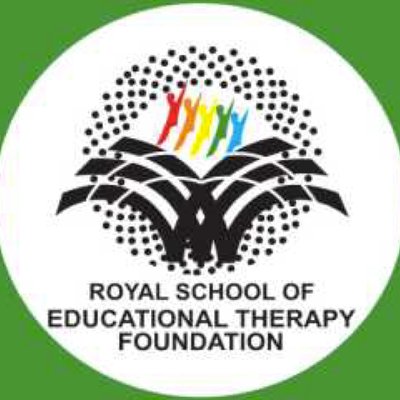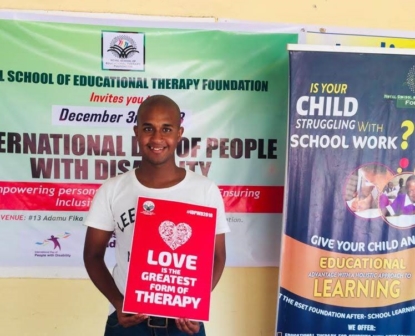Project
Yes We Can
-
Amount Funded
86,175 EUROProject Duration
01 Jul 2019 - 30 Dec 2020 -
-
Lead organisation
-
The Royal School of Educational Therapy (RSE-T) Foundation is a non-profit private school that provides therapeutic services and academic programmes for General Education and Special Education students from Kindergarten to High School. RSETF prepares pupils in general education for University Education and pupils in Special Education for Vocational Life-Long Skills. The vision of RSE-T Foundation is to provide its students with therapeutic and socially enriched academic support and enhanced enlightened opportunities in life. The mission of RSE-T Foundation is to provide students with intellectual disabilities and other learning challenges with the tools to achieve their greatest academic and social potential in a nurturing and safe environment. Specifically, RSETF goals are: • Provide students with learning disabilities and other learning challenges a wide range of intensive, individualised Educational Therapy interventions designed to remediate learning problems. • Provide students with the tools to achieve their greatest potential academically and socially by boosting their self-confidence and self-esteem socially. • Conduct Capacity Building of General and Special Education Teachers and Administrators. • Raise Awareness and sensitise the general public on social and educational inclusion.
-
Organisation
The Royal School of Educational Therapy (RSE-T) Foundation is a non-profit private school that provides therapeutic services and academic programmes for General Education and Special Education students from Kindergarten to High School. RSETF prepares pupils in general education for University Education and pupils in Special Education for Vocational Life-Long Skills. The vision of RSE-T Foundation is to provide its students with therapeutic and socially enriched academic support and enhanced enlightened opportunities in life. The mission of RSE-T Foundation is to provide students with intellectual disabilities and other learning challenges with the tools to achieve their greatest academic and social potential in a nurturing and safe environment. Specifically, RSETF goals are: • Provide students with learning disabilities and other learning challenges a wide range of intensive, individualised Educational Therapy interventions designed to remediate learning problems. • Provide students with the tools to achieve their greatest potential academically and socially by boosting their self-confidence and self-esteem socially. • Conduct Capacity Building of General and Special Education Teachers and Administrators. • Raise Awareness and sensitise the general public on social and educational inclusion.
-
Project
Over 260,000 persons with neurodevelopmental disabilities (PWNDs) in the Federal Capital Territory of Nigeria are out-of-school and do not have the skills to sustain themselves. Also, PWNDs are not featured enough in the mainstream media and do not have enough opportunities to tell their own stories. The Yes We Can project collaborates with relevant stakeholders to identify, assess and empower 50 persons with neurodevelopmental disabilities including a member of their families with vocational and life skills; that enables them to gain the skills needed for societal inclusion during and post the project implementation. After learning a vocational skill, participants register a business and work together to manufacture and market their products. This is encouraged through forming a cooperative where they benefit from economic incentives and grant opportunities available to others. Video documentation of the process is conducted and the participants develop a drama component that showcases how they can overcome their challenges and gain skills needed to become meaningful contributors to society economically and socially. The project also envisions being a channel of storytelling for and by the participants; highlighting their own words and their own actions. This storytelling tool will prove that if given the opportunity and provided with training, resources, opportunities, approach, knowledge and skills, people with neurodevelopmental disabilities can learn a craft, excel and gain the confidence needed to fully participate in community life.
-
-
Over 260,000 persons with neurodevelopmental disabilities (PWNDs) in the Federal Capital Territory of Nigeria are out-of-school and do not have the skills to sustain themselves. Also, PWNDs are not featured enough in the mainstream media and do not have enough opportunities to tell their own stories. The Yes We Can project collaborates with relevant stakeholders to identify, assess and empower 50 persons with neurodevelopmental disabilities including a member of their families with vocational and life skills; that enables them to gain the skills needed for societal inclusion during and post the project implementation. After learning a vocational skill, participants register a business and work together to manufacture and market their products. This is encouraged through forming a cooperative where they benefit from economic incentives and grant opportunities available to others. Video documentation of the process is conducted and the participants develop a drama component that showcases how they can overcome their challenges and gain skills needed to become meaningful contributors to society economically and socially. The project also envisions being a channel of storytelling for and by the participants; highlighting their own words and their own actions. This storytelling tool will prove that if given the opportunity and provided with training, resources, opportunities, approach, knowledge and skills, people with neurodevelopmental disabilities can learn a craft, excel and gain the confidence needed to fully participate in community life.
-
‘Yes We Can’ is a statement that can be made when there are doubts to capability. The doubt and uncertainty expressed towards the ability of people with neurodevelopmental disorder prompted this project idea. It was an attempt to showcase the talent, ability and determination that abound within, for neurodevelopment disorder community. Voice believes that this community considered as people living with disability (PWD), have a Voice and should be allowed to use it to the fullest.
Royal School of Educational Therapy Foundation (RSTF) is a not-for profit private school that provides therapeutic & programmatic educational services for children & young people, particularly those with special needs. The school has a small community of persons with varied physical & intellectual disability who are living their normal life because of therapies and capacity building activities developed for them by the school. Over the years, RSTF has been concerned with the continued poor perception of the society towards this rightsholder group, particularly because they know through years of interaction with the rightsholders, that they have abilities in different ways. Through this project, they wanted to showcase the possibilities within this rightsholders by documenting their daily lives and demonstrating how they navigate through life in their own ways. They hoped that these daily documentaries could change perception and attitude towards the rightsholders.
The project allowed the rightsholders to show case their life in their own terms, driving the narrative around their capacity. The greatest impact made by the project was the fulfilment, sense of accomplishment and joy it brought to the rightsholders doing the project. They engaged in various activities such as bakery, making different home needs like detergents for cleaning, body cream etc and they enjoyed being involved and centre of the whole experience. The joy was overwhelming when they finally watched these processes and engagements as a documentary.
The greatest output of the project- the docudrama, was later developed as a movie called “Ýes We Can” and premiered in Nigeria. The involvement of Nollywood industry in the making of the movie amplified the message of the rightsholders more. It was an opportunity for most Nollywood stars to get insight into the life and struggles of young people with intellectual disability.
One of the key lessons was to never underestimate the abilities of persons living with any form of neurodevelopmental disability. It is worthy of note that during the project, the rightholders demonstrated interest, commitment and engaged in different types of activities which involve steps that should be followed in a sequential order and they understood and followed instructions.
-
News




